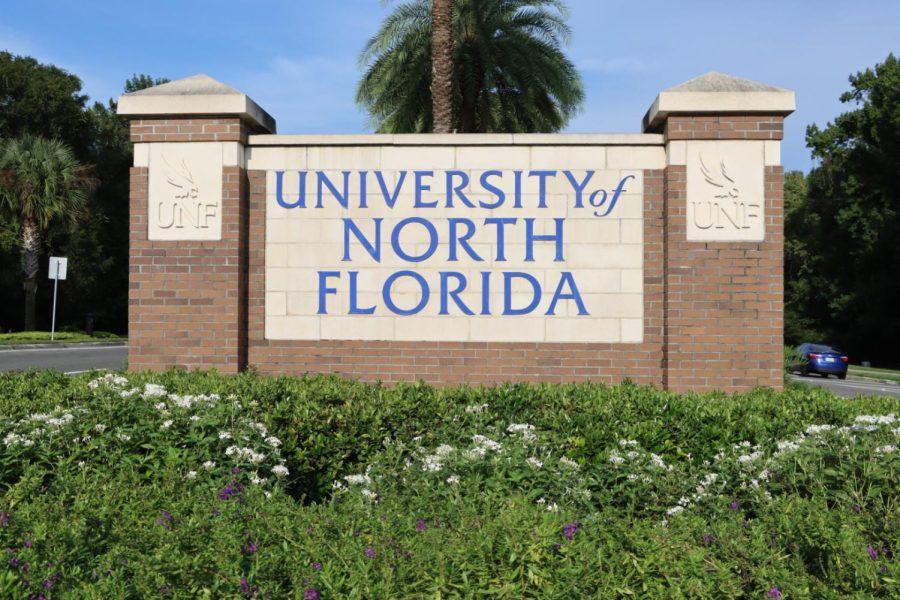“There is a need for an urgent replacement for a Personal assistant (Virtual),” said a Sept. 15 email from a University of North Florida (UNF) professor… or at least, an email appearing to be from a UNF professor.
Offering up to $750 a week for 10 hours of work, the job offer sent from an “@unf.edu” account asked recipients to apply by filling out a form with their personal information and sending it to another email address. The University Police Department (UPD) and Information Technology Services (ITS) suspect this is a form of phishing.
Multiple suspected phishing emails have been sent to UNF students in September and October. Senders reach out with potential job offers and request personal information and money, according to University Police Department (UPD) reports.
One email recipient “assumed the job offer information was legitimate due to [the sender] having a UNF ID number,” UPD wrote. The victim shared her personal information, including her address, driver’s license number, birth date and the last four digits of their social security number, police said.

The email they received contained two documents: one with a job description and the other requesting personal information, said the report. On the job description form, an associate named ‘Derrick Ivan’ with the email address info@gtone-concierge.com was listed as the contact information for the job, police wrote.
After sharing her information for the application, the recipient received a follow-up email telling her she got the job, the report said. The recipient became suspicious when the follow-up email did not contain a phone number or employer address and contacted UPD.
While most of the emails between the victim and the alleged scammer were sent to the UPD, the victim said that the initial email they received from the UNF email address “‘disappeared’ from their inbox and was not in her e-trash bin; she is uncertain how the email deleted itself,” UPD wrote.
Another student reached out to UPD on Oct. 2 regarding a similar email offering a job opportunity. The email also contained two forms, one of which requested personal information, UPD wrote. The victim filled out the forms and was told they got the job, police wrote.
The victim then received a check for $2850 and was instructed to send $500 after receiving the check, UPD reported. After the $500 was sent, the check they received was bounced by the bank the next day, said the report.
Other emails going around make similar offers.
A Sept. 26 email from Job@UniversityOfNorthFlorida offered $450 per week for five hours of work, providing a separate Gmail account to contact if interested. Another email sent on Oct.1 from what appears to be a UNF student email address offers $400 a week for a personal assistant role and asks recipients to click a link to apply.
ITS alerted Ospreys on Tuesday that multi-factor authentication services through phone calls and SMS would be temporarily disabled while they investigate the issue.
Multiple UNF email accounts have been compromised, ITS wrote. Scammers used phone call and text authentication to break into UNF accounts and circulate malicious emails, according to the ITS announcement.
UNF IT described some of the recent phishing tactics university members have recently experienced below:
- “Messages warning of an impending de-activation or account closure, and a link to a website to ‘verify’ your account. The link is used to steal your credentials. Note that UNF will never ask you for your password.
- Offer of a job to the recipient. Usually, this is an unsolicited job that offers unrealistically high pay, with no interview or a few perfunctory questions by email. Eventually, the criminal will either ask for personal information “for payroll purposes” which is used for identity theft.
- Urgent messages from an executive or other important person asking to buy gift cards.
- Messages from a store or common service (such as Netflix) claiming that payment was denied for a recent purchase and directing you to a (fake) website to have you re-enter your credit card information.
- A forged message from a bank alerting you to an account update or a fraudulent transaction was suspected which requires you to log in immediately to resolve it.
- Messages claiming to be from the IRS, the FBI, or other government agencies offering a big tax refund or accusing you of a crime and threatening penalties.”
For more information about phishing scams, visit the link here.
___
For more information or news tips, or if you see an error in this story or have any compliments or concerns, contact editor@unfspinnaker.com.

















